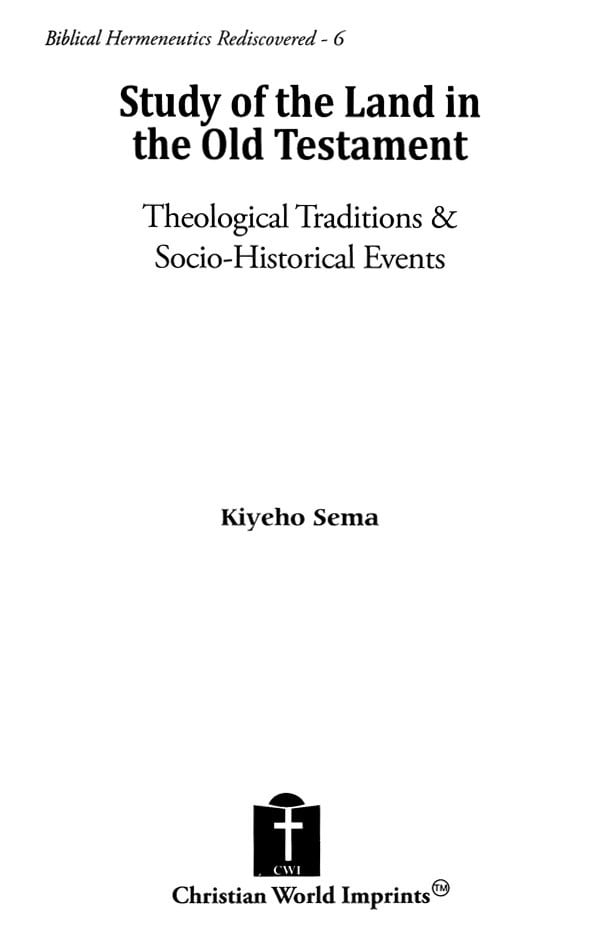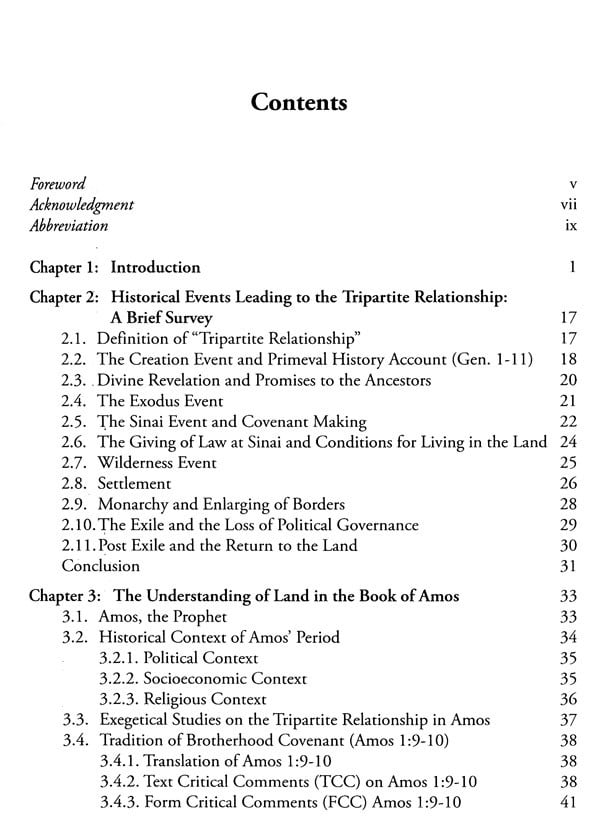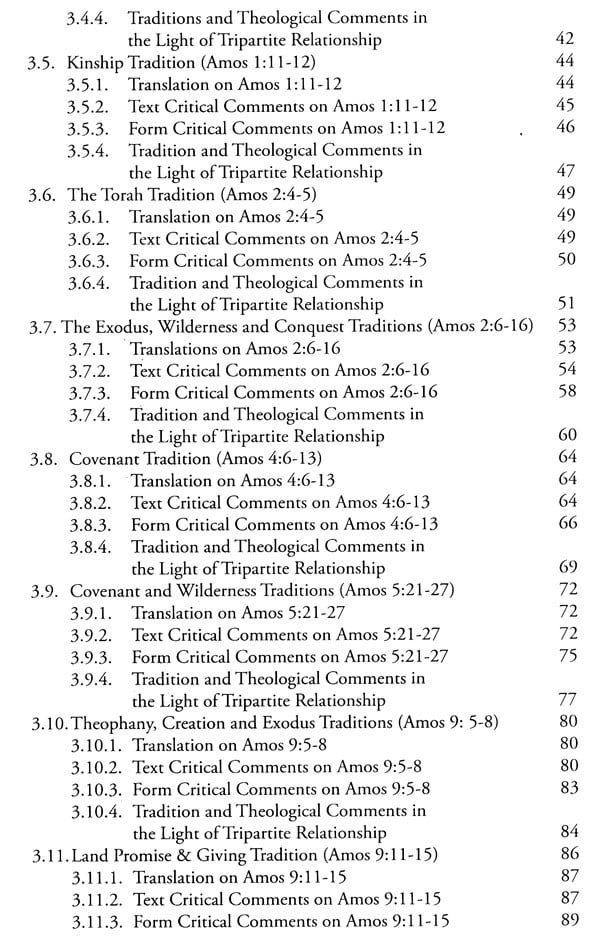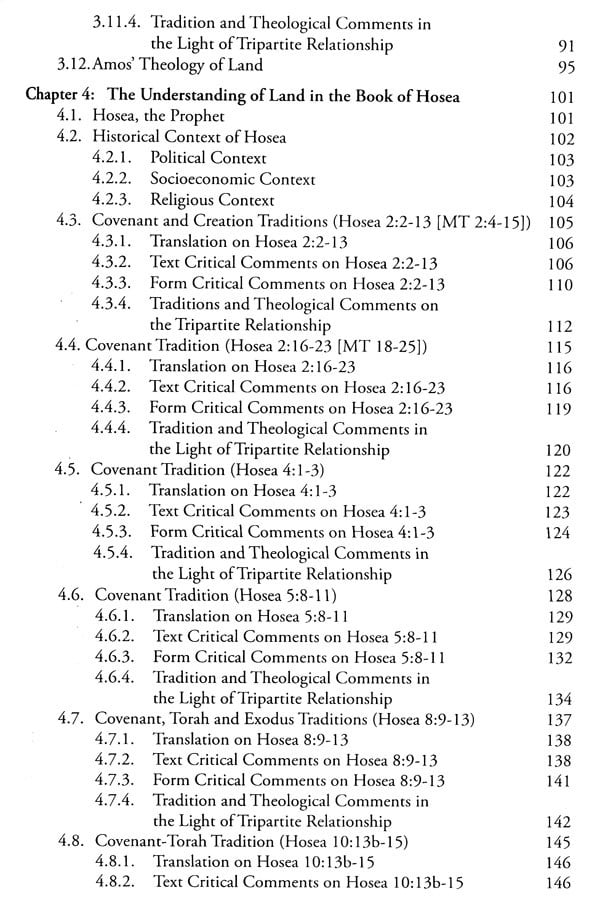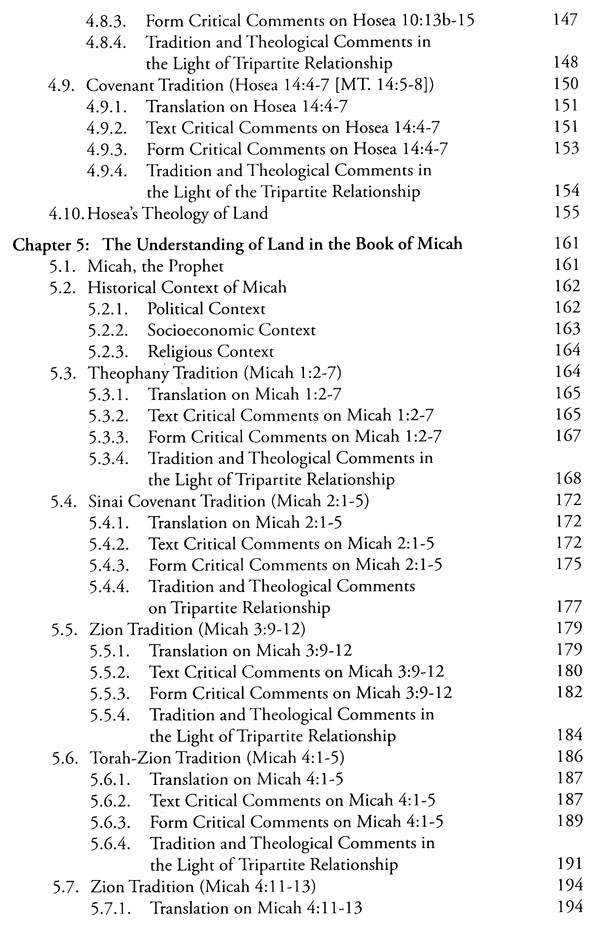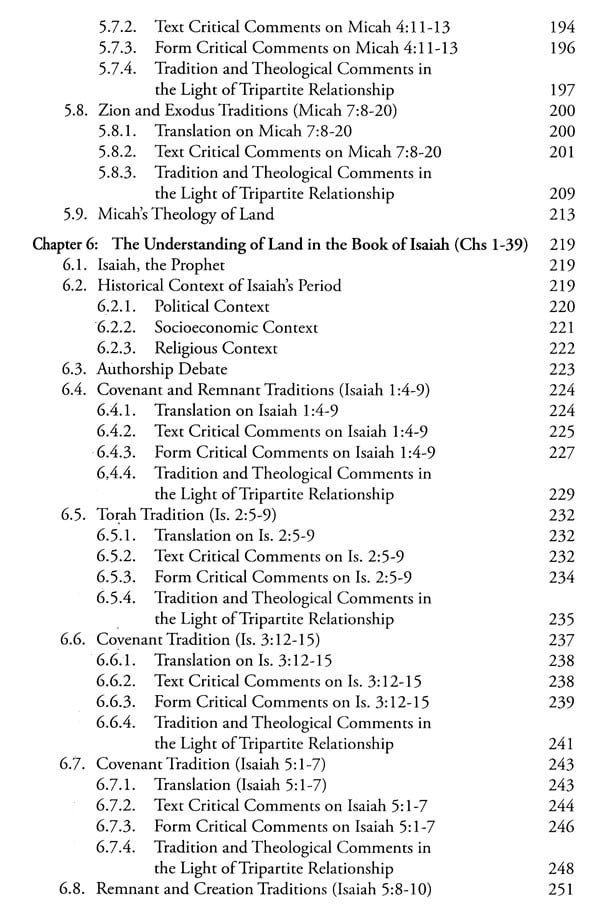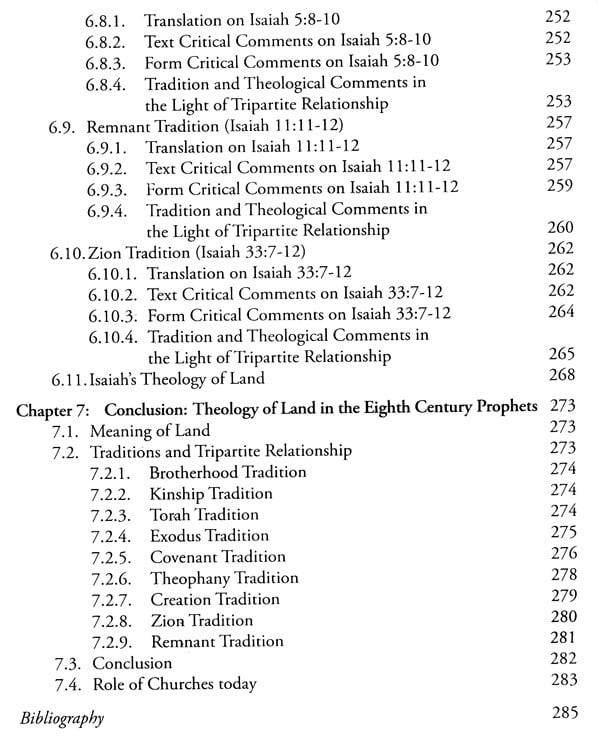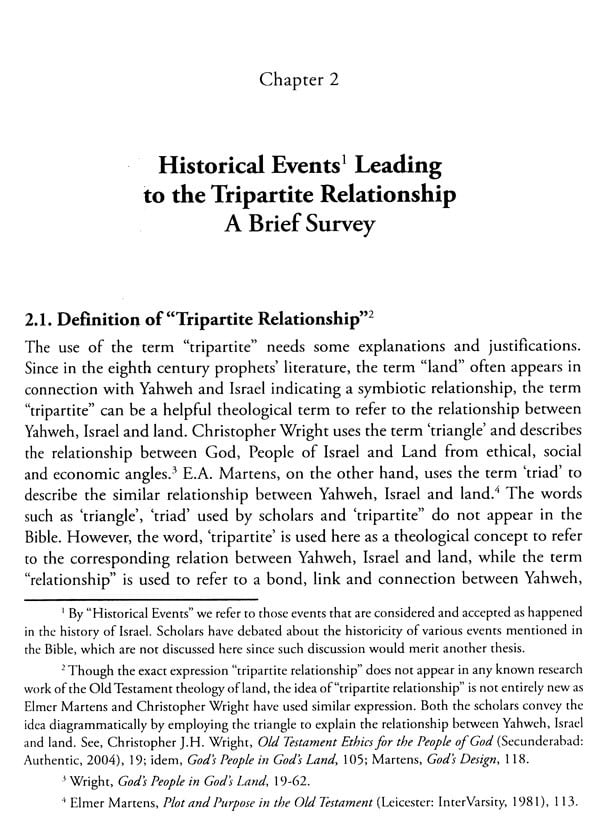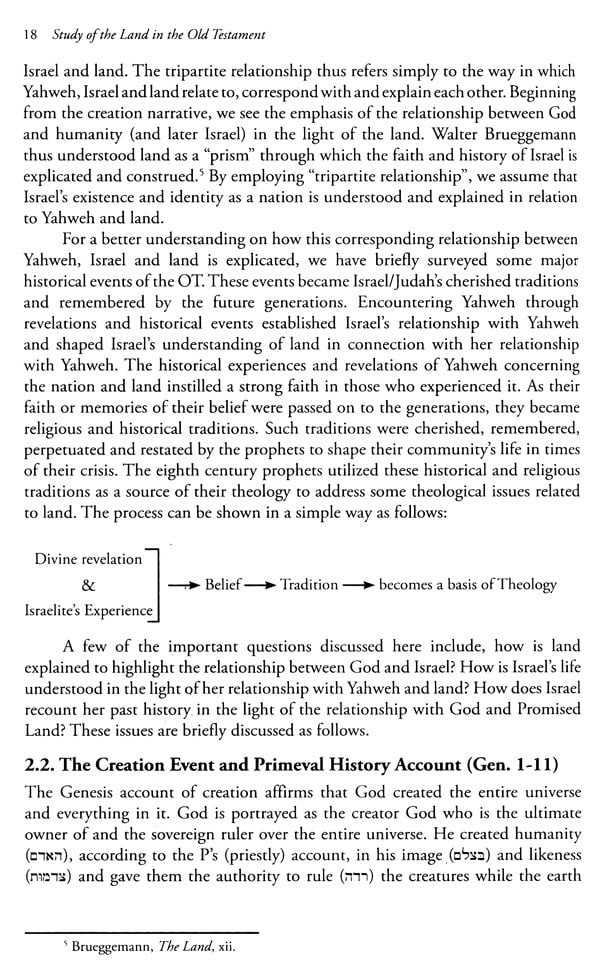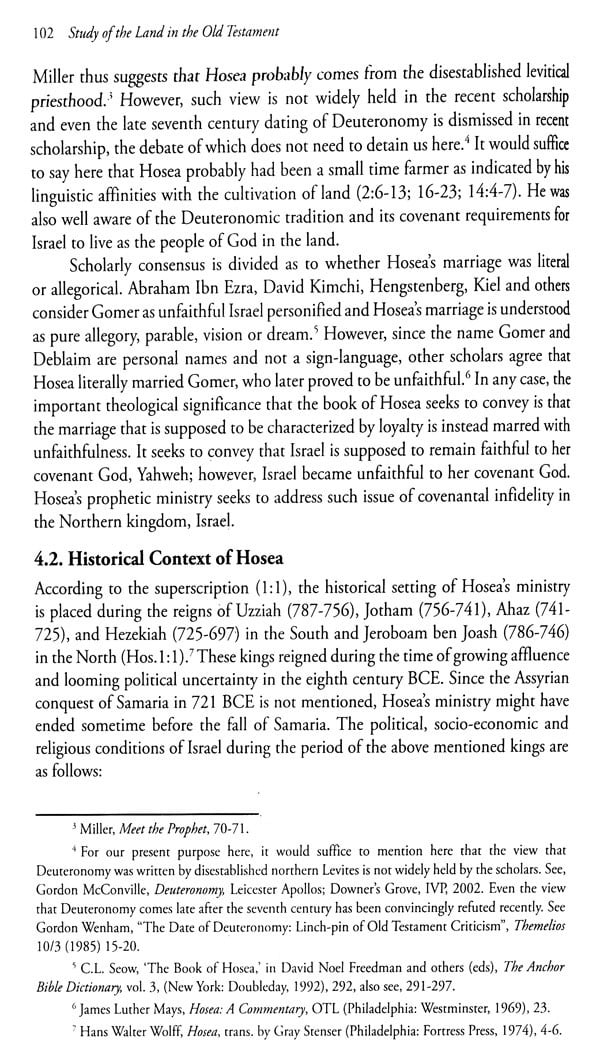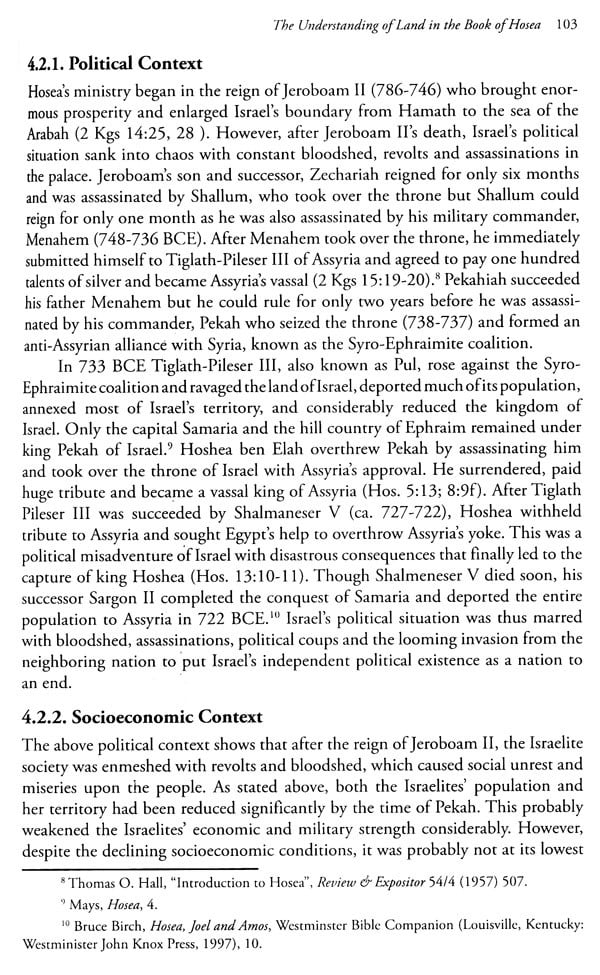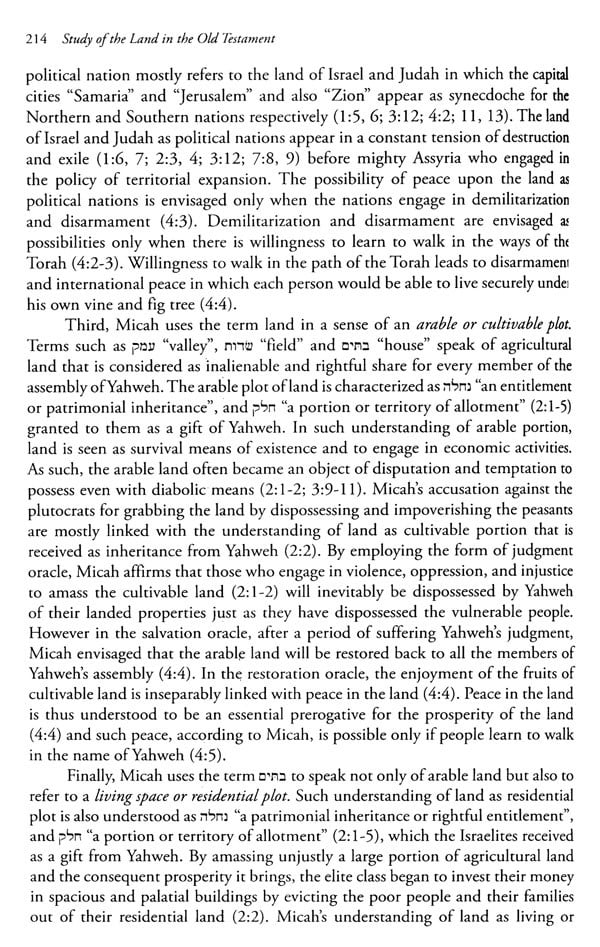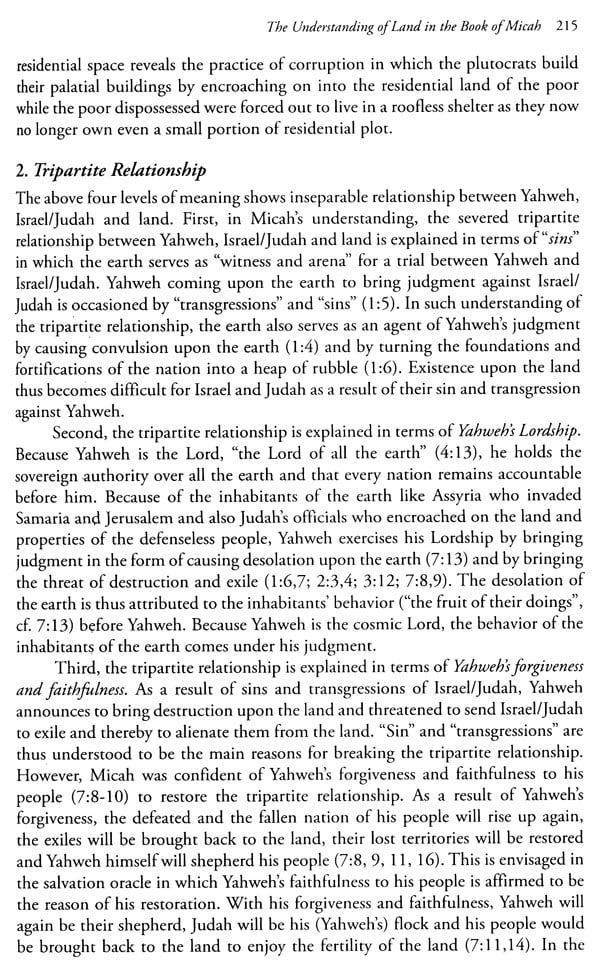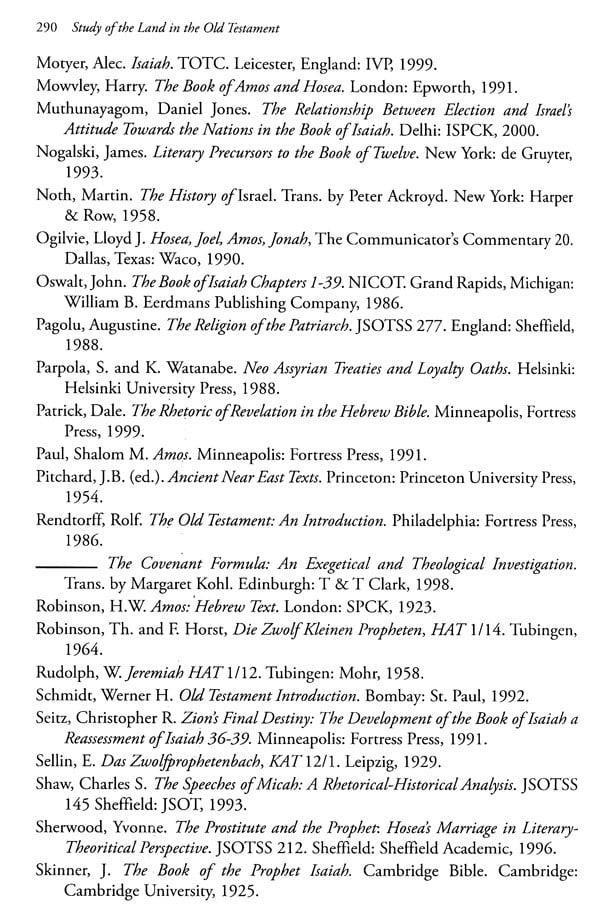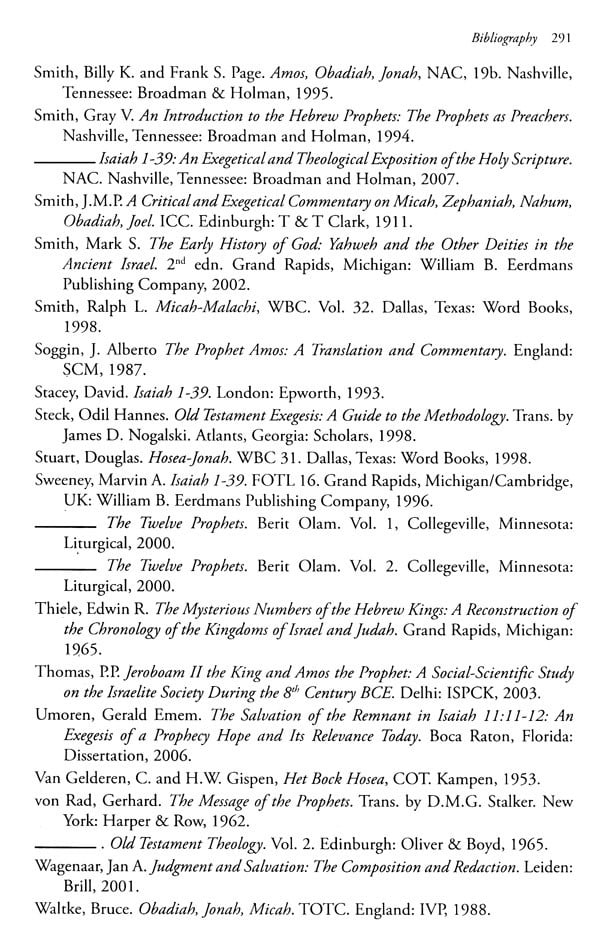About the Book What is the meaning of "land"? Does it refer to an agricultural land or a dry land without cultivation or a living territory or a political nation or a cosmic earth? Kiyeho Sema begins his arguments with a premise that the land theology of the eighth century prophets is basically a tripartite relationship and that such tripartite understanding is shaped by and rooted in various historical and religious traditions of ancient Israel. To substantiate the arguments, he has selected some key texts for exegetical inquiry by employing the form critical and traditio-historical methods to define the meaning of land and see how such meanings are shaped by various traditions embedded in the text.
About the Author Kiyeho Sema is the Principal of Living Bible College, Dimapur, Nagaland. He has done his Master of Theology (M.Th) and Doctor of Philosophy (Ph.D) in Biblical Studies, Old Testament from South Asia Institute of Advanced Christian Studies, SAIACS. He is also the author of Tungkupu Amos: A Commentary on the Book of Amos (2016). He has served as Youth Secretary of Nagaland Christian Revival Church, Sümi Association and General Secretary of Nagaland Christian Revival Churches Council.
Foreword Land is an inseparable part of human life. Our existence on this earth is an evidence to that fact. Various dimensions of land as living space, agricultural field, political kingdom, source of water and air are studied in the academic departments of biology, economics, political science, sociology and geology in the Universities and Colleges. Many kinds of researches are going on the issues of land for so many years. Land ownership and tenure systems during the early monarchical period, colonial period and post-independent period are studied even today. Land reforms related to the problems of Zamindari system, Ryorwari system and Mahalwari system during the colonial and post-independent period became an interesting topic for those who specialize on revenue system of land. Vinobhave effort of promoting Bhoodhan movement to donate land to the landless following the ideals of Gandhi was successful for a short period but could not continue due to the lack of support from the government and landlords. Today, many have become landless and a few have become land owners of large estate in our country.
Churches and seminaries have neglected this important aspect of land for a long period and failed to produce a suitable land theology for India. But thank God, a few doctoral students in seminaries are focusing their attention on studying what the Bible says about land and relating the teachings of the Bible to develop contextual theology and challenge the trend of rich becoming richer and poor becoming poorer. One such effort is taken by Dr. Kiyeho Sema who did his doctoral research on the relationship between God, land and Israel in the Old. Testament. He explored the historical events and theological traditions about the tripartite relationship in the OT to formulate a strong basis to know how the 8th century prophets Hosea, Amos, Micah and Isaiah (chs. 1-39) used these historical events in proclaiming God's justice. During his research in SAIACS, Bangalore he examined the key texts in these prophets and brought out the way they presented the tripartite relationship between God, land and Israel and based their prophecy of judgment or salvation. He spent a few months in UK to collect material on his topic and had opportunity to meet and discuss with scholars there.
Introduction In the Old Testament (OT), the ownership of land is protected by Yahweh in the Tenth Commandment, "You shall not covet your Neighbor's house (r). Protection of an individual's right and access to land is one of the theological fundamentals and sociological dynamics of the early Israelite society. During the settlement period every Israclite had equal access to land and each tribe settled within the allocated portion of land (Jud. 2:6). The perpetuation of such practice is envisaged by the Law of Moses, "The land shall not be sold in perpetuity for the land is mine, "(Lev. 25:23). This apodictic law with an emphatic negation (you shall not...), prohibits the permanent sale of land.
**Contents and Sample Pages**
